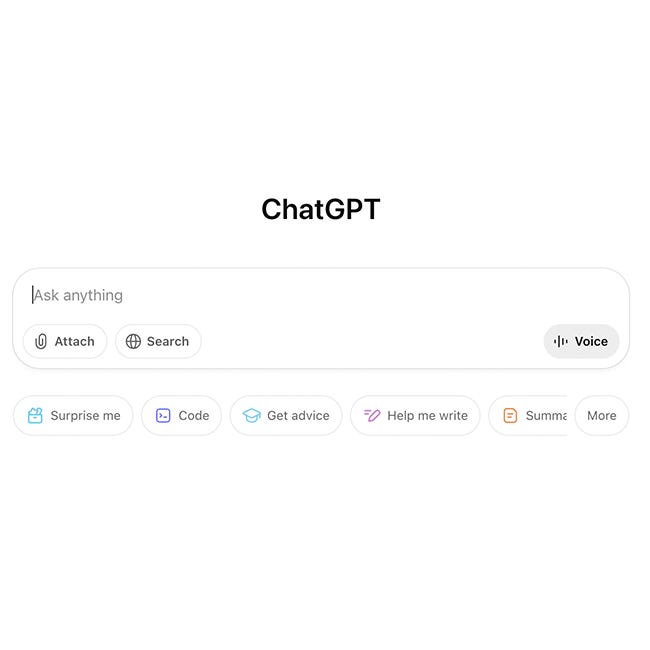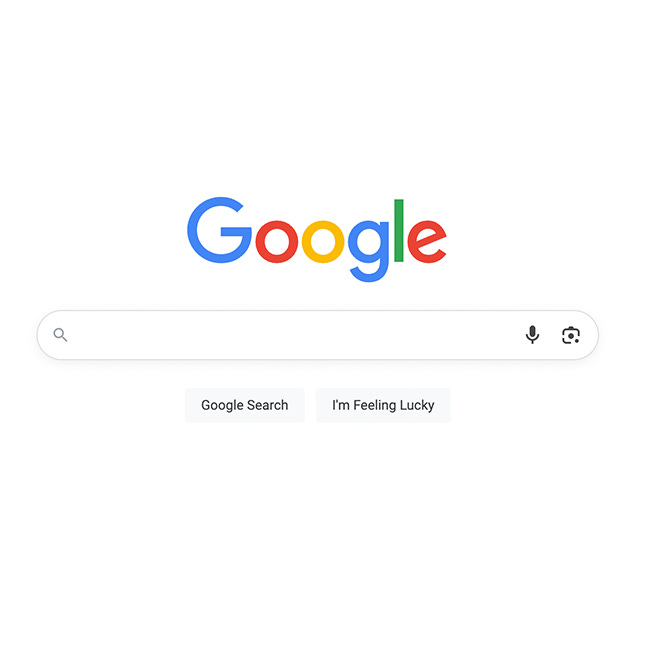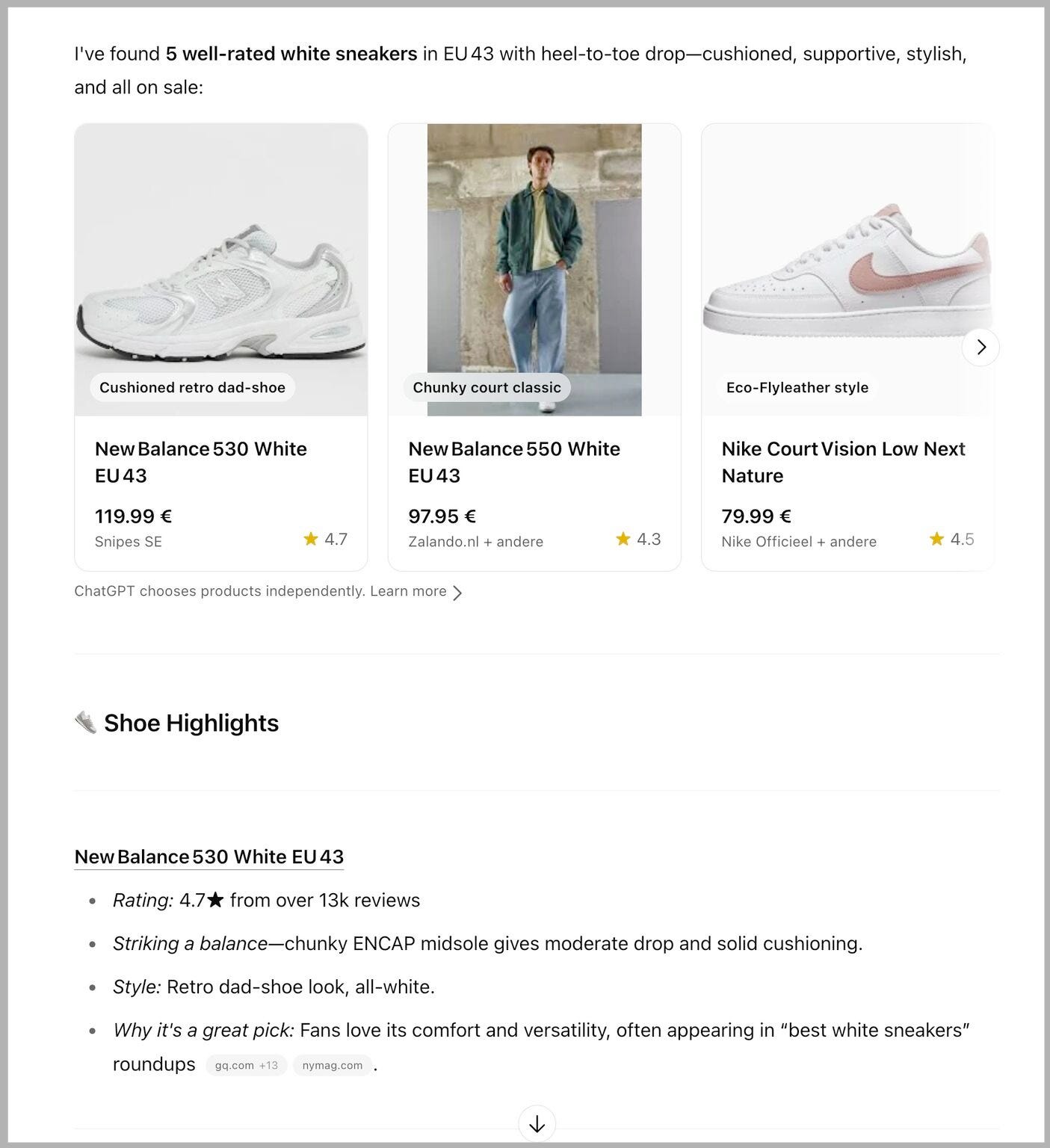#3: Google Chrome is winning. But so was Internet Explorer.
When AI starts browsing for us, visibility becomes something else entirely. Here’s what ChatGPT’s new browser means for marketers.
👋
My mom always used to Google very long queries.
Think:
“What are the types of birds that sleep while flying called?”
Instead of:
“Birds sleep flying”
And we used to make fun of those long sentences.
Little did we know that she was ahead of the curve,
as this is exactly how we’re asking AI for answers these days.
Until now, we’ve been talking about Googling and asking Chat as two different things.
That’s starting to fade:
Google’s AI overviews are taking over Google search rapidly
OpenAI announced their own web browser (reuters.com)
I don’t know if you’ve ever noticed, but they even look extremely similar:


So let’s talk about that OpenAI browser and what it might mean for findability.
OpenAI to release their browser later this month
OpenAI is launching its own AI-powered browser 🌐. A full-blown browser, ironically built on Chromium (reuters.com), with ChatGPT at the core.
It can answer questions, complete tasks, and pull live data from the web without sending you to a search result page.
In other words: This is not about making browsing easier. It’s about redefining what browsing means.
We don’t have to click our way through newsletter pop-ups and cookiebanners for a tomato soup recipe anymore
But we’ll also have more difficulty getting our brand shown (read earlier Ai found you issues on Reddit and Reviews to boost findability)
Why Google should be worried
Google's empire is built on two pillars:
Chrome owns the browser market.
Google Search monetizes it with ads.
Now imagine millions of users skipping both 📉
If OpenAI gets even a fraction of its ~400 million weekly ChatGPT users to adopt this browser, Google loses attention and data. That’s a potential revenue problem.
I just opened Google.com and got prompted to use Google’s Gemini instead. Google’s making the same move, but they’re losing grip. Just their AI overviews are simply not enough. Users want chat-based conversations and answers now.
Reuters calls OpenAI’s browser a "direct challenge to Google's dominance" (reuters.com).
The whole thing would be conversational. You ask a question, the browser answers. You give a task, the browser does it.
Now imagine your AI browser doing your shopping. Searching for the best deals within your question.
Moving away from blue links, scrolling and… SEO?
What a browser working for you looks like
A while ago, on their most expensive plan (200$/month), OpenAi released their Operator. It’s basically an AI Agent executing your orders in a browser.
It could book your trips, respond to e-mails and analyse spreadsheets.
Sounds great doesn’t it? Well, don’t rush to buy just yet.
I expected:
A combination of ChatGPT intelligence with a fast moving cursor in a browser, creating a keyword research in minutes.
What I got:
Futuristic? Absolutely. Helpful? Not at all.
Not even close to what I expected. More like an 8 year old helping out.
I’m guessing an OpenAI browser will have this (hopefully updated) Operator feature available as well.
So we just might be looking at a future where we’re optimizing our products for.. non human clients.
Ads are coming. And they won’t look like Google’s.
Right now, the AI experience is clean. But I don’t expect it to stay that way.
OpenAI's CFO has confirmed that the company is exploring advertising formats for 2026 (axios.com).
Sam Altman himself called mixing paid influence into model output "a trust-destroying moment" (adweek.com).
That said, I don’t think OpenAI is going to keep burning money forever.
I expect sponsored prompts, visual inserts, and contextual offers as early as Q1 2026.
So what now?
We need to think beyond rankings.
Your content isn’t just fighting for page 1, it’s fighting for a position in an AI-generated answer.
To stay visible:
✅ Get your brand named, not just cited — ChatGPT pulls from reviews, bios, and intro paragraphs. Make sure your name shows up early, often, and naturally.
✅ Speak the language of tasks — Think “book a demo,” “compare prices,” “download the report.” That’s how people prompt AI.
✅ Leverage external trust signals — Reddit threads, public reviews, G2 pages, Kiyoh snippets—these are high-trust sources models love to quote.
✅ Structure for machine readability — Add schema, keep key facts outside of PDF downloads, and avoid burying names in dense paragraphs.
✅ Rewrite for AI, not just humans — One clear sentence is better than a clever metaphor when you want to be included in an answer.
With Google, Microsoft, and OpenAI all racing to own that AI layer, it might be time to start picking a horse to bet on.
My bet has been Google so far.
I’m expecting them to walk away with the biggest piece of the pie, once again.
But with this new browser and the lightning-fast adoption rate of ChatGPT.
I’m not so sure anymore.
That’s why we’re already optimizing our clients for both.
See you in two weeks,
Luuk
Thoughts? Questions?
Send them to luuk@offbeatmarketing.nl or drop me a DM on LinkedIn.
PS new to Ai found you? Find last weeks issue on the importance of Reviews here.





